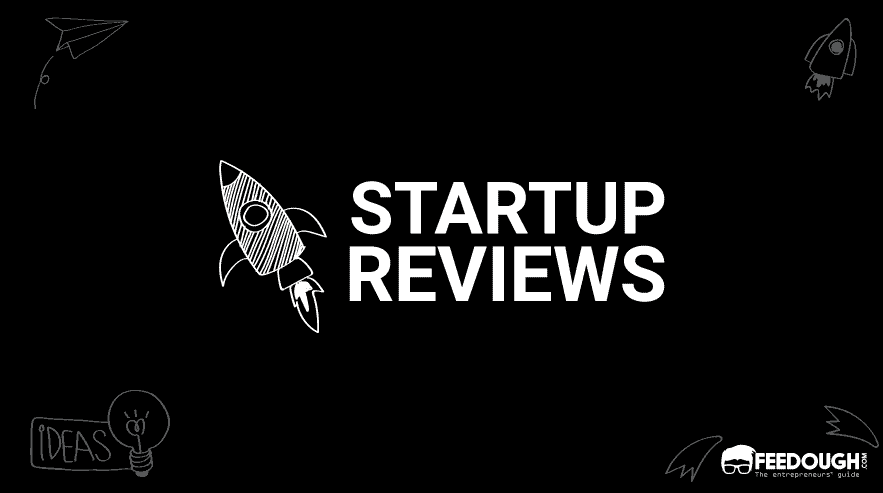The medical industry is one of the most challenging industries, given that it deals with sensitive health data, requires strict regulatory compliance, and deals with expensive treatments, including surgeries that are life-saving for some people. On top of that, the medical industry also suffers from high failure rates, which adds an additional layer of complexity.
However, technology is changing this landscape, and a different field of technology has developed, focusing on improving the functioning of the medical industry.
Enter Medtech.
Today, people can walk into any store and buy a wearable device, like an Apple Watch or Fitbit, which tracks their heart rate and other metrics that could affect their health. Doctors communicate with patients on the go without meeting face-to-face. Surgeries are done by robots and are free of human error. New medicines are being developed for diseases that were previously considered uncurable.
Medtech is evolving at an unbelievable speed, and there’s a lot more it will disrupt in the coming years.
What is Medtech?
Medtech or medical technology is the application of organised, technological knowledge and skills to improve healthcare services’ quality, safety, effectiveness, and efficiency.
In other words, it refers to the use of technology in healthcare to achieve better patient outcomes.
Medtech includes but isn’t limited to medical devices, digital health technologies, vaccine technology, medicines, and diagnostics. It includes every technological use with an aim to:
- Improve the quality of care
- Enhance early detection and prevention of diseases
- Enable more effective treatments
- Help manage chronic conditions
- Support patients during their journey to recovery
- Developing cures for previously incurable diseases
- Reduce the cost of healthcare
- Making healthcare available to everyone, regardless of their location or economic status
Medical Industry Challenges
The medtech industry is a dynamic and fast-growing market with immense opportunities and risks. The ageing population in developed countries and people suffering from chronic diseases requiring treatment are the major drivers for the growth of the global medtech market.
However, despite its growth, the medical industry remains a challenging market. Delivering high-quality care at a lower cost and standardised way are the barriers to the growth of medtech.
There are several other challenges that the medical industry is facing today. Some of these include:
- Regulatory Framework: The regulatory framework for medical devices differs significantly across jurisdictions, creating an uneven field for manufacturers.
- Clinical Adoption: The lack of clinical adoption is one of the most considerable barriers to the growth of medtech because many of the devices are too expensive for patients to afford.
- Accessibility: Limited access to healthcare solutions in developing markets makes it difficult for patients and physicians to adopt new solutions.
- Productivity: The medtech industry is concerned with making cost-effective products and providing the best solution to their clients. However, it is facing issues related to the time it takes to develop a product and outsourcing R&D to ensure that the product is cost-effective.
- Counterfeit Devices: Intellectual property right is valuable important than the cost of manufacturing in the medtech industry. But, the counterfeiters flood the market with untested devices, which causes the patients to face poor outcomes. So manufacturers constantly look for ways to protect their rights to ensure they can reap benefits for their business.
- Increasing Healthcare Cost: Today, health care is already expensive, and it continues to grow. So, fear among people who use medical devices to treat chronic diseases shows that these goods would become pricey and out of reach.
- Cyber Security: The rise of digital technology has increased cybersecurity concerns. It also applies to medical devices that connect to the internet. Medical device makers are increasingly dealing with patient privacy and protection issues, making producing smart devices more difficult and expensive.
- Rising Expectations of Patients: With the advancement in technology, patients have become more aware and their expectations have increased. They now want better and more personalised treatments.
- Shortage of Skilled Professionals: The lack of trained staff is one of the main challenges for the healthcare industry. In fact, the US is already facing a severe shortage of doctors.
- Lack of Interoperability: Different electronic health records (EHR) systems used by different hospitals and clinics often don’t work together. This makes it difficult to share patient information, which can lead to errors.
Medtech Use Cases
Medtech helps improve patients’ health by providing a solution to the problems experienced. Some of the medtech use cases are:
- Diagnostics and Medical Testing: Diagnostic testing is used detect diseases and medical conditions before they become serious issues.
- Telemedicine: It is the use of technology for remote diagnosis. Telemedicine allows doctors to provide diagnoses and prescriptions using the internet and a device to anyone who wants it despite their financial status.
- Remote Health Monitoring: The health of older persons is monitored using remote health monitoring systems. It is connected to an app with sensors that can detect changes in the patient’s health and alert caregivers.
- Virtual Collaboration: As we all know, surgeries involve complex procedures for treating various diseases and conditions. Often, doctors may seek help from experienced doctors who may not be physically available. But, with the use of medical technologies, it is possible through virtual collaboration.
- Mobile Healthcare: It helps improve the patient’s overall health by giving access to healthcare providers in locations that are not accessible to doctors or hospitals.
- Preventive Care: Preventive care significantly affects healthcare and disease treatment. It involves providing treatments that can prevent illness from occurring in the first place.
- Medical Robotics: Medical robots can help perform surgical procedures with increased precision and lower cost than human surgeons. They also allow for surgical practices on 3D models and save cost on dummy human models.
- Digital Health: It uses technology to help people manage their health. It involves analysing data from wearable devices to help individuals find patterns that can lead to diseases.
- Biometrics: Biometrics uses physical measurements or attributes like fingerprints, voice and retina scans to determine someone’s identity.
- Implantable Medical Devices: These devices are used to replace or improve body parts. It can include pacemakers, defibrillators, cochlear implants, and sensors that can detect changes in glucose levels.
Medtech Startups & Companies
Many medtech companies are developing new technologies to assist doctors in automating their activities, gathering patients’ data, and improving their efficiency. Some well-known medtech companies are Medtronic, Jhonson & Jhonson, Philips, etc.
Medtronic

Medtronic is a pioneering healthcare technology company that provides solutions for the most complicated and challenging health situations.
Combining data, artificial intelligence, and its profound knowledge of the human body has revolutionised the treatment of over 70 world’s most complicated ailments.
Johnson & Johnson

Johnson & Johnson is one of the world’s largest and most diverse healthcare companies dedicated to harnessing its scale and scope for good. J&J works to increase access and affordability and build healthier communities accessible to everyone.
Every day, with over 130,000 workers worldwide, it combines its heart & science to transform the direction of human health.
For instance, it has designed 3 cutting-edged eye lenses to improve how we see. J&J is a global leader in medical devices used to treat orthopaedic trauma. In addition, it offers one of the world’s most comprehensive portfolios of spinal care solutions.
Philips Healthcare

Philips India Limited is a subsidiary of Royal Philips, a major health technology business focusing on improving people’s health. It uses advanced technologies and extensive clinical and consumer insights to provide integrated solutions for healthcare problems.
Phillips is a market leader in diagnostic imaging, image-guided treatment, patient monitoring, health informatics, and consumer health care.
Cardinal Health

Cardinal Health is a vital link between healthcare’s clinical and operational sides. It provides end-to-end solutions and data-driven insights that enhance healthcare and benefit lives.
It has designed products like ENFit™ Connection System, Specimen Collection Kits Specimen, Women’s Health Medical Kits, Negative Pressure Wound Therapy Devices, Laboratory Capital Equipments, etc.
Thus, with over 50 years of expertise, it continues to seize every chance to confront the most complex challenges in healthcare using diverse perspectives and innovative digital solutions.
The Future of Medtech
We are in an era of advanced medical care, where the Internet of Things (IoT) and wearable devices play a prominent role. So, it has become necessary to embrace innovative technologies.
Smartphone applications and wearable devices are already revolutionising healthcare delivery. Thus, in the future, it is believed that a combination of IoT, wearables and AI technologies will transform healthcare and redefine the industry.
As we know, over the years, the human mind has solved various complex health and well-being issues using medical technologies. Hence, in the future, we can expect more advancements in the medical technology field. It will be interesting to see how medical technology affects the industry and how our lives change.
Go On, Tell Us What You Think!
Did we miss something? Come on! Tell us what you think about our article on Medical Technology in the comments section.
A lawyer and an avid reader with a keen interest in company laws. Anwesha has good experience of writing in the legal and startup industries for well over 10 companies. In her free time, you can find her reading fiction and stargazing.









